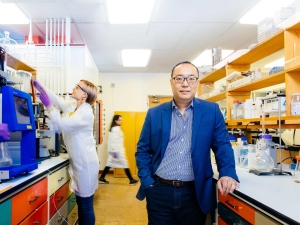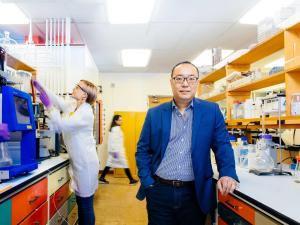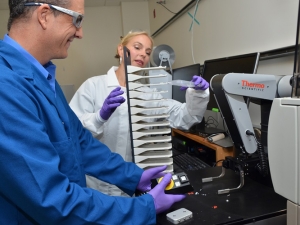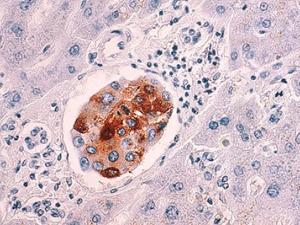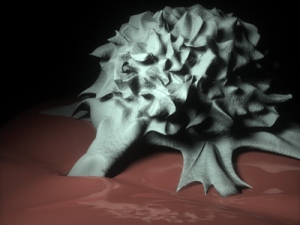

Research Bio
Dan Nomura is a Professor of Chemical Biology and Molecular Therapeutics in the Department of Chemistry and the Department of Molecular and Cell Biology in the Division of Molecular Therapeutics at the University of California, Berkeley. He is the Co-Director of the Molecular Therapeutics Initiative and an Investigator at the Innovative Genomics Institute at UC Berkeley. He is also an Adjunct Professor in the Department of Pharmaceutical Chemistry at UCSF. Since 2017, he has been the Director of the Novartis-Berkeley Translational Chemical Biology Institute focused on using chemoproteomic platforms to tackle the undruggable proteome. He is Co-Founder of Frontier Medicines, a start-up company focused on using chemoproteomics and machine learning approaches to tackle the undruggable proteome. He is also a co-founder of Zenith Therapeutics focused on targeted protein degradation of undruggable targets. He is on the Scientific Advisory Boards for Frontier Medicines, Zenith, Photys Therapeutics, Apertor Pharma, Oerth Bio, and Ten30 Biosciences. Nomura is also on the scientific advisory board of The Mark Foundation for Cancer Research. He is also an Investment Advisory Partner at a16z Bio+Health, an Investment Advisory Board member at Droia Ventures, and an iPartner with The Column Group. In 2025, Nomura also became the Editor-in-Chief for Molecular Cancer Therapeutics. He earned his B.A. in Molecular and Cell Biology in 2003 and Ph.D. in Molecular Toxicology in 2008 at UC Berkeley with Professor John Casida and was a postdoctoral fellow at Scripps Research with Professor Benjamin F. Cravatt before returning to Berkeley as a faculty member in 2011. Among his honors are the National Cancer Institute Outstanding Investigator Award, Searle Scholar, and the Mark Foundation for Cancer Research ASPIRE award.
The Nomura Research Group is focused on reimagining druggability using chemoproteomic platforms to develop transformative medicines. One of the greatest challenges that we face in discovering new disease therapies is that most proteins are considered “undruggable,” in that most proteins do not possess known binding pockets or “ligandable hotspots” that small-molecules can bind to modulate protein function. Our research group addresses this challenge by advancing and applying chemoproteomic platforms to discover and pharmacologically target unique and novel ligandable hotspots for disease therapy. We currently have three major research directions. Our first major focus is on developing and applying chemoproteomics-enabled covalent ligand discovery approaches to rapidly discover small-molecule therapeutic leads that target unique and novel ligandable hotspots for undruggable protein targets and pathways. Our second research area focuses on using chemoproteomic platforms to expand the scope of targeted protein degradation technologies. Our third research area focuses on using chemoproteomics-enabled covalent ligand discovery platforms to develop new induced proximity-based therapeutic modalities. Collectively, our lab is focused on developing next-generation transformative medicines through pioneering innovative chemical technologies to overcome challenges in drug discovery.
Major Research Directions
- Chemoproteomics-enabled covalent ligand discovery platforms to tackle the undruggable proteome
- Expanding the scope of targeted protein degradation using chemoproteomic platforms
- Discovering new induced proximity-based therapeutic modalities
Research Expertise and Interest
chemistry, molecular and cell biology, chemical biology, cancer, drug discovery, chemoproteomics, undruggable
In the News
Dan Nomura Receives ASPIRE Award for Cancer Research
An expert on 'undruggable' targets tackles the coronavirus
Scientists pivot to COVID-19 research, hoping for quick results to deal with pandemic
With interspecies hybrids, it makes a difference who’s the dad and who’s the mom
Triple-negative breast cancer target is found
UC Berkeley researchers have found a long-elusive Achilles’ heel within “triple-negative” breast tumors, a common type of breast cancer that is difficult to treat.
Disabling enzyme reduces tumor growth, cripples cancer cells, study finds
Knocking out a single enzyme dramatically cripples the ability of aggressive cancer cells to spread and grow tumors, offering a promising new target in the development of cancer treatments, according to a new study by researchers at the University of California, Berkeley.
Nomura named Searle Scholar
Daniel Nomura, an assistant professor in nutritional sciences and toxicology, is one of 15 U.S. researchers in the chemical and biological sciences to be named a 2012 Searle Scholar.

